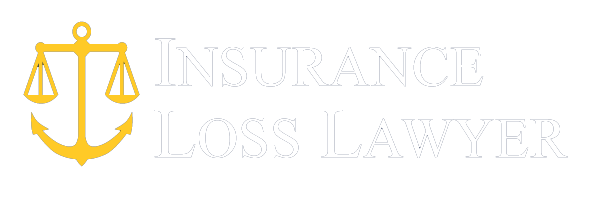Appraisal is a form of binding arbitration that is contained in most policies of insurance. Whether the loss was caused by hurricane, fire, sinking, flood, windstorm, collision, theft or any other casualty, disputes as to the amount of damages can be resolved through the appraisal process that is provided for in most policies of insurance. This procedure is available to parties to an insurance contract to have the disputed amount of damages/ loss determined. Most policies provide that there must be a difference in opinion as to the damages/ loss in excess of $500.00. Generally, Appraisal is a faster, less expensive method of determining the amount of damages than litigation. Appraisal clauses can be found in most insurance policies; however, many insurers have been taking appraisal out of their policies or changing the clause to allow only the insurer to elect appraisal. Historically, the procedure provided by the appraisal clause has been invoked more often by insurers who generally have greater familiarity with the terms and conditions of their policies, although insureds have recently looked more to post-loss appraisal as a means of quickly resolving damage disputes. Unlike a litigation where the Rules of Civil Procedure apply and formal arbitration, post-loss appraisal is usually handled on an informal basis. Despite its informal nature, there are many potential dangers in an Appraisal to those who are not fully versed in the intricacies of insurance or how a claim should properly be presented to the Appraisal panel. While each policy contains its own appraisal clause with its own distinct language, the language and/or appraisal procedure may be governed by statutes enacted by the individual state in which the policyholder resides or maintains its business, or where the damaged property may be located, the procedure is generally the same. When either the insurer or the insured determines that it cannot reach agreement on the amount of damages, or the value of the loss, the appraisal clause may be invoked. Each party appoints an appraiser, who conducts his or her own examination and assessment of the loss and makes a determination of the value of the property damages. In the state of Florida, the insured’s adjuster (Public Adjuster) may act as the insured’s appraiser. The appraisal package or the appraiser’s estimate and computation of damages may be based upon existing information, or may require development of new avenues of exploration that may involve outside experts. Once each side has made a determination as to the amount of damages sustained in the loss, the two appraisers discuss their respective findings in an attempt to reach common ground. If the appraisers can agree on an amount of loss, they will execute an award and the appraisal is finished. If there are areas where the appraisers agree, then that portion of the claim is resolved and an award can be entered as to those portions of the claim. For those portions of the loss where the appraisers cannot agree, then an impartial third party, called an umpire, is selected to settle the dispute. If the two appraisers cannot agree on the selection of an umpire, either side may apply to the local court for the appointment of someone to serve in that capacity. In selecting an umpire, the parties should choose someone who will not only be fair and impartial, but will also maintain a sense of order over the appraisal process. To that end, someone with experience in claims adjusting, contracting and/or mediation would best serve the interests of both sides to the dispute. If the parties cannot agree on an umpire and file a petition with the Court to select same, the Court often Orders that a retired judge act as the umpire. Once the umpire has been selected, the appraisers present their assessment of the loss, often involving informal testimony from the parties involved in the claim. Whenever possible, and in order to provide the umpire with a better understanding of the true circumstances of the loss, the appraisers and the umpire will meet at the actual loss location/ inspect the damaged property and review the details of the claim. The appraisers will provide the umpire with documentation supporting their respective assessments of the loss. After hearing testimony, even on an informal basis, the umpire might request a post-hearing submission where the appraisers submit their final assessment of the loss. The umpire will then render a decision which, if agreed to by either or both appraisers, constitutes the appraisal award. David Avellar Neblett is an Advanced Certified Umpire by WIND and can assist you in any appraisal issues that you may have or he can be appointed as a neutral Umpire.
Unlike a litigation where the Rules of Civil Procedure apply and formal arbitration, post-loss appraisal is usually handled on an informal basis. Despite its informal nature, there are many potential dangers in an Appraisal to those who are not fully versed in the intricacies of insurance or how a claim should properly be presented to the Appraisal panel. While each policy contains its own appraisal clause with its own distinct language, the language and/or appraisal procedure may be governed by statutes enacted by the individual state in which the policyholder resides or maintains its business, or where the damaged property may be located, the procedure is generally the same. When either the insurer or the insured determines that it cannot reach agreement on the amount of damages, or the value of the loss, the appraisal clause may be invoked. Each party appoints an appraiser, who conducts his or her own examination and assessment of the loss and makes a determination of the value of the property damages. In the state of Florida, the insured’s adjuster (Public Adjuster) may act as the insured’s appraiser. The appraisal package or the appraiser’s estimate and computation of damages may be based upon existing information, or may require development of new avenues of exploration that may involve outside experts. Once each side has made a determination as to the amount of damages sustained in the loss, the two appraisers discuss their respective findings in an attempt to reach common ground. If the appraisers can agree on an amount of loss, they will execute an award and the appraisal is finished. If there are areas where the appraisers agree, then that portion of the claim is resolved and an award can be entered as to those portions of the claim. For those portions of the loss where the appraisers cannot agree, then an impartial third party, called an umpire, is selected to settle the dispute. If the two appraisers cannot agree on the selection of an umpire, either side may apply to the local court for the appointment of someone to serve in that capacity. In selecting an umpire, the parties should choose someone who will not only be fair and impartial, but will also maintain a sense of order over the appraisal process. To that end, someone with experience in claims adjusting, contracting and/or mediation would best serve the interests of both sides to the dispute. If the parties cannot agree on an umpire and file a petition with the Court to select same, the Court often Orders that a retired judge act as the umpire. Once the umpire has been selected, the appraisers present their assessment of the loss, often involving informal testimony from the parties involved in the claim. Whenever possible, and in order to provide the umpire with a better understanding of the true circumstances of the loss, the appraisers and the umpire will meet at the actual loss location/ inspect the damaged property and review the details of the claim. The appraisers will provide the umpire with documentation supporting their respective assessments of the loss. After hearing testimony, even on an informal basis, the umpire might request a post-hearing submission where the appraisers submit their final assessment of the loss. The umpire will then render a decision which, if agreed to by either or both appraisers, constitutes the appraisal award. David Avellar Neblett is an Advanced Certified Umpire by WIND and can assist you in any appraisal issues that you may have or he can be appointed as a neutral Umpire.


2550 South Bayshore Drive
Suite #211
Miami, FL 33133
Tel: 855-456-0445
Fax: 305-967-8182
Info@NeblettLaw.com

Just write down some details and our customer success heroes will get back to you in a jiffy!